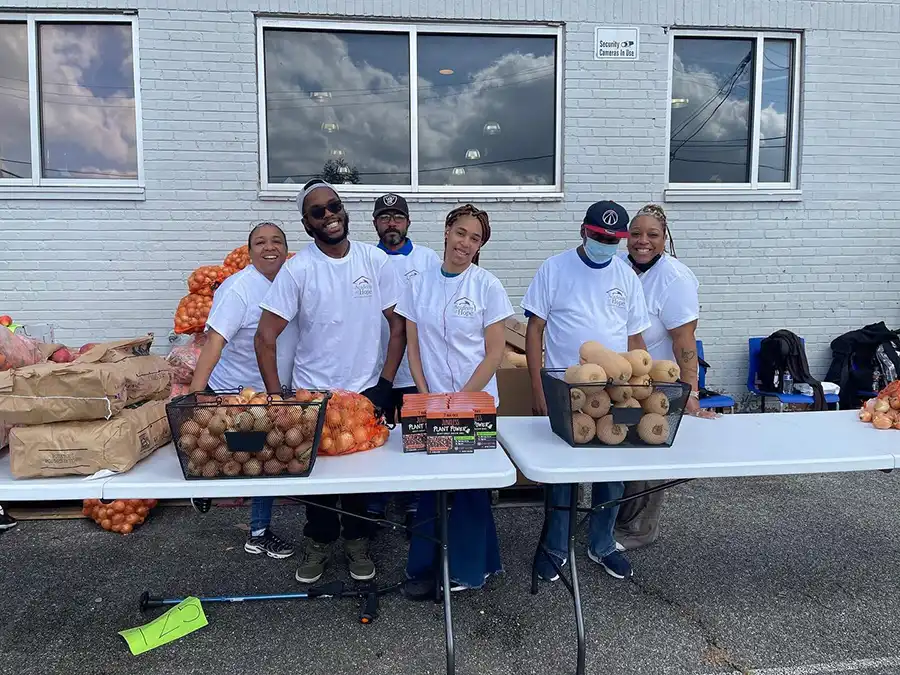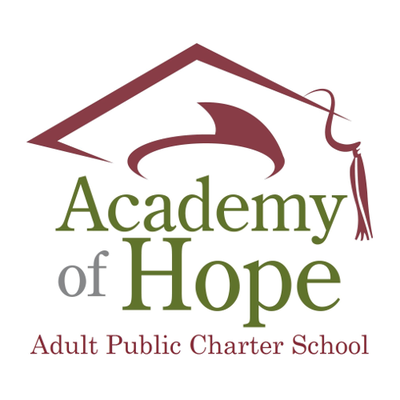
Food insecurity is rapidly worsening in the District of Columbia. Immediate solutions are critical.
According to the Capital Area Food Bank’s Hunger Report of 2025, more low-income families are facing food insecurity due to acute pressures from inflation and other factors. In D.C., 40% of the population is food insecure, with limited access to adequate, nutritious food to sustain their lives. Despite attempts to cut costs and save, inflation ultimately prevails. Federal nutrition programs like the Supplemental Nutrition Assistance Program (SNAP) have struggled to keep pace with rising food costs, providing inadequate relief to those in need.
Due to the government shutdown, D.C. Mayor Muriel Bowser had to use local emergency funds to ensure SNAP and WIC benefits were distributed for November. While this means the 409 Academy of Hope (AoH) learners on SNAP benefits will receive the support they need, it also highlights how government policies or funding situations can shift unexpectedly. That being said, it’s important for learners in need to know and understand where they can receive urgent assistance so they don’t have to worry about meeting their basic food needs while finishing their education.
Proactive Measures
Food is included in the Self-Sufficiency Assessment taken by learners. If a learner identifies themselves as being in “crisis” for food, a Student Support Team (SST) Specialist will be notified to follow-up with the learner on the matter. Specialists then check in bi-weekly with these learners to provide updated food pantry information, help them access community food pickup programs, and assist with any urgent food needs. Learners complete the assessment each semester to report changes as their circumstances evolve.
Informative Updates
SST works diligently to inform learners about the different ways they can receive food assistance.
“We’re pushing fliers, Schoology posts, and emails to learners so they know where they can access food day to day,” Director of SST Traci German said. Fliers can be found on bulletin boards across AoH, listing locations and hours of different food pantries in D.C.
One resource includes The Capital Food Bank’s Mobile Market. The Mobile Market provides fresh produce to specific locations across the district, free of charge, and no questions asked. The team is also researching more about supplying hot meals during the winter months.
They also help eligible learners apply for SNAP, WIC, and other assistance programs. From helping them complete their form to collecting the required documentation, SST will help a learner through all stages of the application process.
Direct Assistance
Each AoH location hosts a food pantry available to learners at designated times.
At Ward 5, Plenty to Eat Food Pantry (PTE) serves learners and the community free, donated food every Tuesday through Thursday. The food available varies, from nutritious fruits and vegetables to non-perishable treats. Learners can receive food by filling out a single-page application and providing proof of identification.
Outside of PTE’s business hours, food is available on the grab-and-go table in the Multi Purpose Room (MPR) and refrigerator on the first floor. It’s also an alternative for anyone who doesn’t feel comfortable sharing that they need food assistance, as they don’t interact with PTE volunteers when receiving food.
AoH partners with Martha’s Table on the fourth of every Wednesday to provide free, fresh food to Ward 8 learners.
Those interested in learning more about the different food assistance programs and pantries available, please contact your designated SST specialist:
- Ward 5 Daytime: Shatyra Henry, shatyra@aohdc.org
- Ward 8 Daytime: Porsha James, porsha@aohdc.org
- Ward 5 Evening: Coretta Edwards, coretta@aohdc.org
- Ward 8 Evening: Nathaniel Swinson, nathaniel@aohdc.org
Conclusion
With food insecurity on the rise in D.C., it is essential to offer adults pathways towards economic mobility. Adult education directs adults down this path. It provides high school diploma programs and workforce certifications required for high-income employment. AoH also recognizes the importance of offering direct assistance during their journey. This helps them sustain their bodies with nutritious foods and gives them the strength needed to achieve their educational goals.
